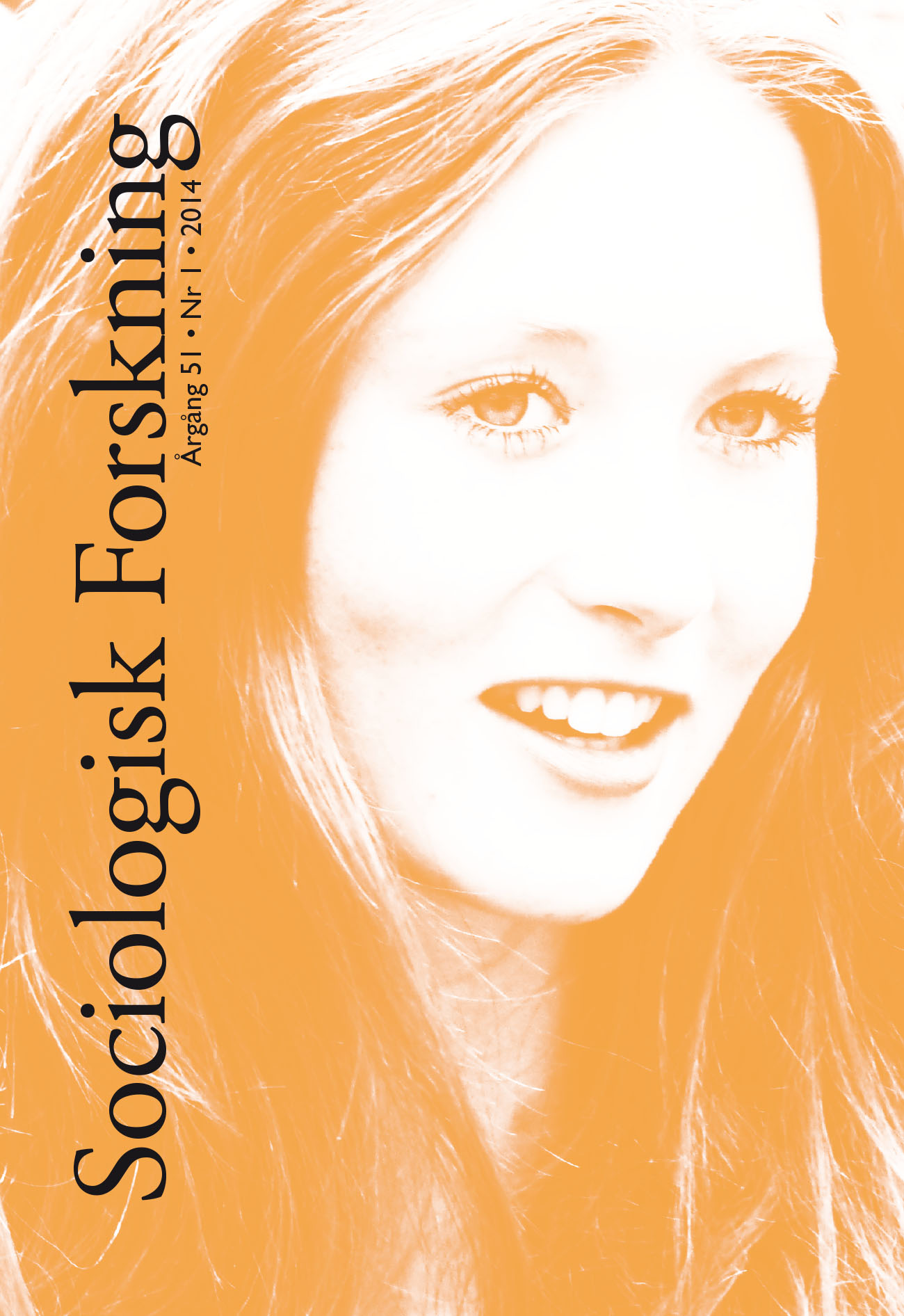De sociala konstruktionerna av hög ålder och funktionsförmåga
exemplet intellektuellt funktionshinder
DOI:
https://doi.org/10.37062/sf.51.18307Keywords:
social construction, intellectual disability, ageing, old ageAbstract
The social constructions of old age and ability – the example of intellectual disability
The aim of this article is to analyse and discuss constructions of old age as they are reflected in disability research with the focus on ageing and what it means to be elderly. The results of this study show three tendencies. First, the consequences of the impairment tend to be at forefront in studies of experiences of ageing among persons with intellectual disabilities. This obscures the fact that people with intellectual disabilities partake in a common idealisation of youthfulness that often contains ambivalence towards old age. Second, the concept of old age in disability research embraces significantly wider chronological age groups than those considered in ageing studies. Third, both disability and ageing research tend to use a late modern perspective of individualization as a way to illustrate new options and strategies, including resistance against stigmatisation. This article illustrates that social constructions of disability and old age are tightly interwoven, and constitute negations of normatively defined ideals of normality in a society where ability are highly regarded.
Downloads
Published
How to Cite
Issue
Section
License
All content in Sociologisk Forskning is published with immediate open access, under the Creative Commons license CC BY-NC-ND 4.0.
All content may be read, downloaded, shared and printed for non-commercial purposes, free and without fees. Contents may not be altered. When content is reused, author, source and a link to the copyright licence must be provided. The author retains copyright to their content. No publication fees are charged.





